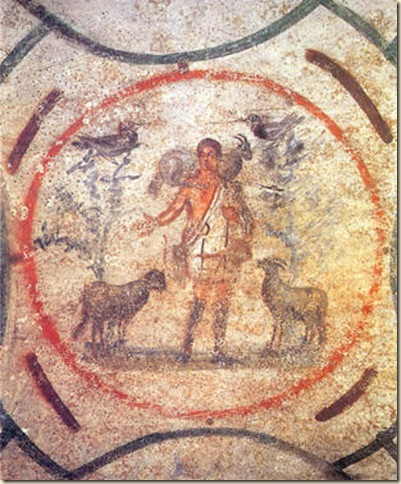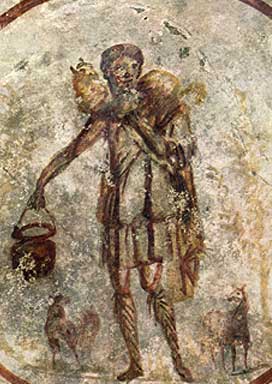- Jul 2, 2018
- 18,580
- 11,385
- Country
- United States
- Faith
- Christian
- Marital Status
- Married
"Surely some righteous indignation is called for against those who construct a sentence of endless damnation against countless millions of God's children (very largely) on the strength of phrases like the above, whose meaning is so completely misapprehended Let us examine further. Not alone is the sin of Israel "incurable," but so is the wound of Samaria - Mic. i. 9. And yet this "incurable" wound is to be cured, for the captivity of Samaria is to be turned again.- Ezek. xvi. 53 Nor is this all. Sodom and Gomorrha suffer the vengeance of "eternal fire " - Jude, and are to be a "perpetual" desolation - Zeph. ii. 9, and yet the "perpetual" desolation is to end in restoration - Ez. xvi. 53; and this temporary meaning is constantly that of "perpetual" in Scripture: e.g., Lev. iii. 17, xxiv. 9, xxv. 34; Jer. xxxiii. 40. So, too, Ammon is to be a "perpetual" desolation - Zeph. ii. 9; is to fall and rise no more - Jer. xxv. 21, 27; and yet it is to be restored - Jer. xlix. 6. And so Elam is to fall and rise no more - Jer. xxv. 27, yet in the latter days it is to be restored, ch. xlix. 39. The same is true of Egypt: compare Jer. xxv. 19, 27, with Ezek. xxix. 13, &c. And Moab is to be destroyed, and yet restored. - Jer. xlviii. 4, 47.
Now why is all this? Why in the Prophets do threats most awful, and hopes most radiant, jostle one against another? Why do Mercy and Terror, Despair and Joy, alternate, as the portion of the same persons? Why this seeming chaos? Not because God has conflicting purposes, but precisely because He has no conflicting purposes: threats and hopes are blended because threats and hopes serve the same end. Nay, were the threats of Scripture still more awful than any recorded, were they as clear as they are so often figurative and obscure; and were we stripped of most (or all) of the direct promises of universal salvation, still we might have hope, knowing that "God is Love," and that with God "all things are possible."
"WHOSOEVER SHALL SAY, YOU FOOL, SHALL BE IN DANGER OF HELLFIRE." S. Matt. v. 22.
The popular interpretation reduces these words to an absurdity. "It is incredible that to call a man a fool should be so much a worse crime than to call him Raca, that, whereas for the one offense men are to be brought before a court of justice, for the other they are to be damned to an everlasting torment." - Salv. Mund. The hellfire of this passage is the fire of "Gehenna."
"FEAR HIM WHICH IS ABLE TO DESTROY BOTH SOUL AND BODY IN HELL." S. Matt. x. 28.
These words point to God's power rather than to His intention. They say God is able to destroy soul and body; they do not say that God will do so. And if they do point to an intention, those who read what has been said above on "death," "destruction," (ch. vi.) will readily perceive how accordant with the usage of Scripture it is to make destruction and death a path to life; see pp. 9-10, 149, 184-90.
Christ Triumphant by Thomas Allin chapter nine --- bold emphasis mine
Now why is all this? Why in the Prophets do threats most awful, and hopes most radiant, jostle one against another? Why do Mercy and Terror, Despair and Joy, alternate, as the portion of the same persons? Why this seeming chaos? Not because God has conflicting purposes, but precisely because He has no conflicting purposes: threats and hopes are blended because threats and hopes serve the same end. Nay, were the threats of Scripture still more awful than any recorded, were they as clear as they are so often figurative and obscure; and were we stripped of most (or all) of the direct promises of universal salvation, still we might have hope, knowing that "God is Love," and that with God "all things are possible."
"WHOSOEVER SHALL SAY, YOU FOOL, SHALL BE IN DANGER OF HELLFIRE." S. Matt. v. 22.
The popular interpretation reduces these words to an absurdity. "It is incredible that to call a man a fool should be so much a worse crime than to call him Raca, that, whereas for the one offense men are to be brought before a court of justice, for the other they are to be damned to an everlasting torment." - Salv. Mund. The hellfire of this passage is the fire of "Gehenna."
"FEAR HIM WHICH IS ABLE TO DESTROY BOTH SOUL AND BODY IN HELL." S. Matt. x. 28.
These words point to God's power rather than to His intention. They say God is able to destroy soul and body; they do not say that God will do so. And if they do point to an intention, those who read what has been said above on "death," "destruction," (ch. vi.) will readily perceive how accordant with the usage of Scripture it is to make destruction and death a path to life; see pp. 9-10, 149, 184-90.
Christ Triumphant by Thomas Allin chapter nine --- bold emphasis mine
Upvote
0


